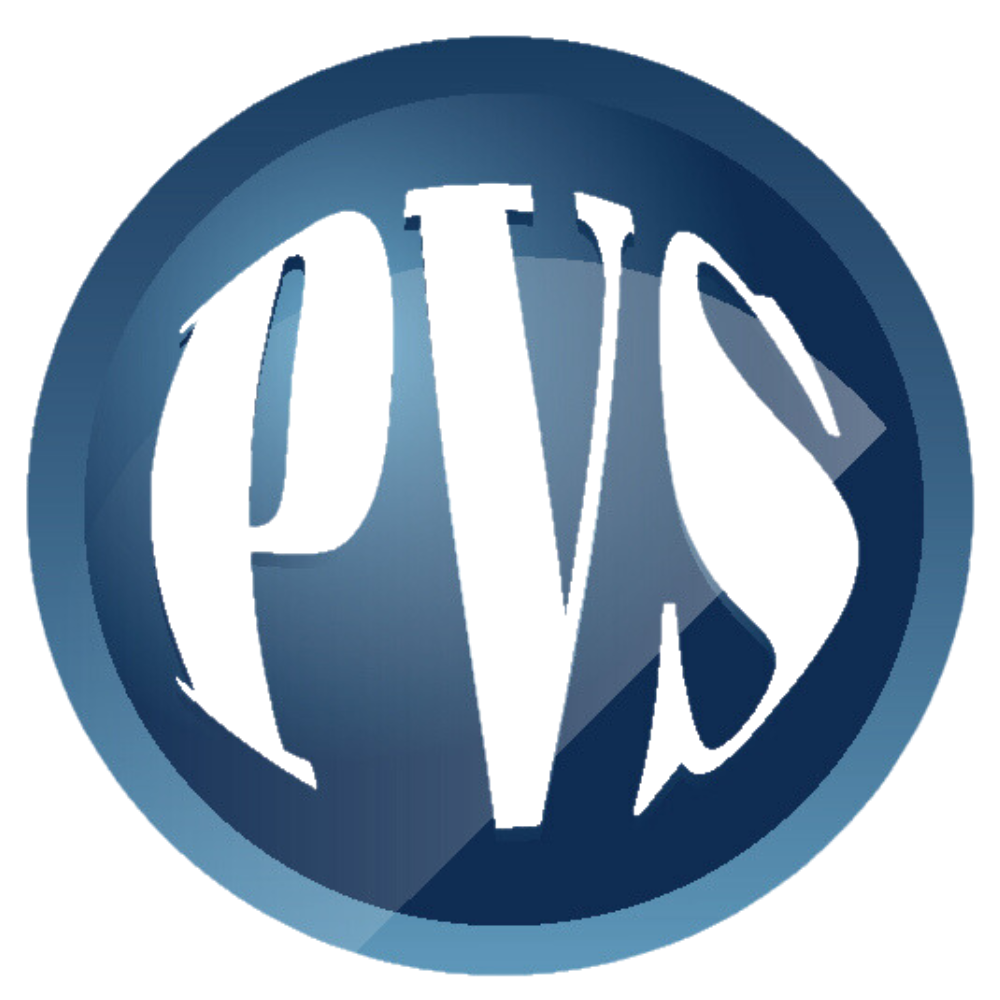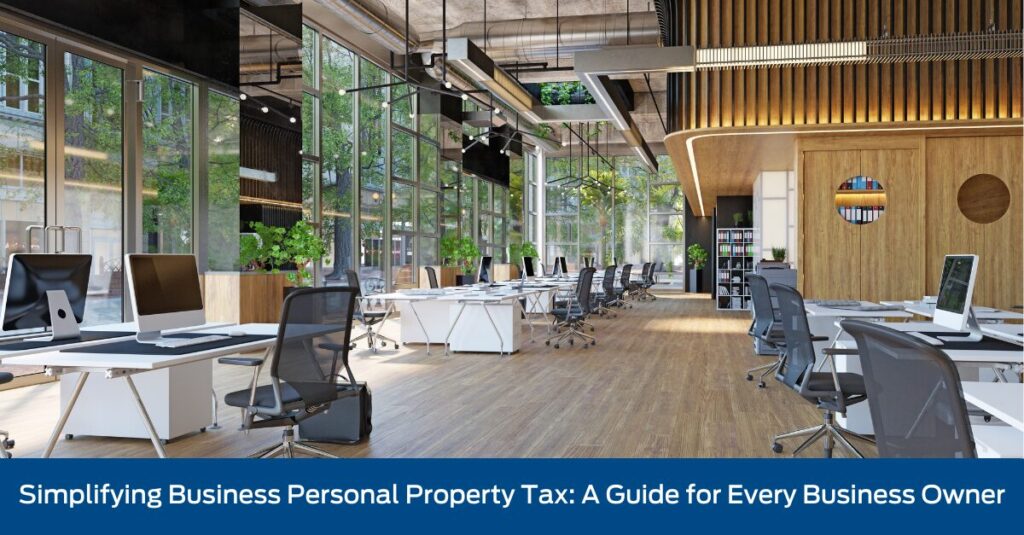Business Personal Property Tax Guide for Business Owners
Business personal property (BPP) tax can be taxing! Ignoring or misunderstanding property tax doesn’t just risk compliance issues; it could mean missing out on substantial property tax savings. Also, overpaying on property taxes drains essential resources and funds that could support growth, innovation or bolster your business’s financial health.
Understanding business personal property tax is a financial strategy that can significantly impact your bottom line. In this business personal property tax guide, learn how to navigate BPP effectively so you’re not leaving money on the table and enable smarter investments for your business.
What is Business Personal Property Tax?
Business personal property tax is a self-reporting tax where taxpayers file returns listing tangible assets they possess as of a specific date. Assets commonly include furniture, machinery, computer and office equipment, vehicles and inventory. Essentially, if it’s not real estate, it’s likely business personal property.
It’s different from the property tax on your building or land, which is called real property tax. The key is to report exactly what you have, so you don’t pay more property tax than you should.
In most states, assessing jurisdictions require annual filings of business personal property tax renditions. Failure to file can result in arbitrary assessments by assessors. Depreciation tables are commonly used to consider the acquisition date and cost of assets and account for their declining value over time. These tables often include various rates of depreciation to accommodate different asset types.
Why Getting It Right Matters
Filing your business personal property tax return is a critical step in managing your property tax liability. Incorrect filings — overvaluation, undervaluation or omission of assets — can lead to unnecessary property tax overpayments or potential penalties. Such financial missteps draw essential resources away from crucial business growth areas, impacting your ability to innovate, expand and maintain operational stability. Moreover, every dollar inaccurately allocated to property tax overpayments is not invested in your business’s future.
Consequently, Property Valuation Services’ (PVS) comprehensive approach to personal property valuation includes the following techniques:
Identification of High-Technology Assets
We have expertise in identifying and valuing high-tech assets accurately.
Cost Adjustments
We have developed proprietary cost adjustment methodologies to revalue assets so that the valuation reflects the current market value.
Industry Specific Depreciation Schedule
We utilize depreciation schedules tailored to specific modalities or industries.
Market Approach for High-Tech Equipment
We employ market-based approaches for valuing high-tech equipment.
Equipment Appraisals
Our team houses American Society of Appraisers (ASA) equipment appraisers who can conduct thorough equipment appraisals to determine accurate, credible values.
AHA Useful Life Analysis
For healthcare, we perform useful life analyses following the American Hospital Association guidelines.
Replacement Cost vs. Reproduction Cost
We assess the replacement cost versus reproduction cost for accurate valuation.
Ghost Asset “Clean-Up”
We identify and rectify ghost assets for accurate assessment.
Identification of Non-Taxable Assets
We identify assets that may be exempt from taxation.
What’s the Process of Filing a Business Personal Property Tax Return?
Each year, businesses are required to file a business personal property rendition detailing their assets. This includes information like acquisition dates, costs and other relevant documentation. Accurate filing is crucial because it directly impacts your property tax assessment. Inaccurate filings or underreporting can lead to crippling audit liabilities, including penalties and interest.
The filing date can vary by jurisdiction. Typically, these returns are due annually, with deadlines ranging as early as January or late as November in a few places. The specific date can differ from one state, county or city to another. It’s important to check with your local tax authority for the exact filing deadline applicable to your business.
How Do Assessors Figure Out Your Business Personal Property Tax?
The Tax Foundation explains that “Taxes on [Tangible Personal Property] are levied mostly by local governments, but they are regulated at the state level. There is much variation in how TPP is taxed. Property classifications, assessment ratios and exemptions are often established by the state, with localities opting to tax TPP within the boundaries set by the state government.
Seven states (Delaware, Hawaii, Illinois, Iowa, New York, Ohio and Pennsylvania) exempt all TPP from taxation, while another five states (Minnesota, New Hampshire, New Jersey, North Dakota and South Dakota) exempt most TPP from taxation except for select industries that are centrally assessed, such as public utilities or oil and natural gas refineries.”
Factors To Consider When Calculating Your BPP Tax
Moreover, when calculating your BPP Tax, here’s what to keep in mind:
1. Current Value of Assets
Consider both the original purchase price and their current market value. Factor in how much they have depreciated over time.
2. Age of Assets
Note that the date you acquired each asset and their expected useful life span are necessary to accurately calculate depreciation.
3. Depreciation
Know the depreciation rate applicable to each category of your assets and how much their value has diminished over the years.
The Internal Revenue Service stated, “You can depreciate most tangible property (except land), such as machinery, vehicles, furniture and equipment. You can also depreciate certain intangible property, such as patents, copyrights and computer software.” Property qualifies for depreciation if it is owned by you, used in your business or for income generation, has a measurable useful life and is expected to last more than one year.
4. Local Property Tax Rules
Be aware of the specific property tax rates in your jurisdiction, available exemptions or deductions and the filing deadlines and documentation requirements.
5. Type of Assets
Movable items like equipment, machinery, computers and furniture are subject to business personal property tax, along with considerations for the property tax implications of leased equipment.
6. Professional Valuation
Consulting with property tax experts can lead to an accurate valuation of your assets and strategies to minimize your taxable liability through legal avenues.
Paying Less Business Property Tax Legally
Avenues to potentially reduce your business personal property tax involve several strategies and considerations that align with property tax laws and regulations:
Exemptions and Exclusions: Identify assets that may be completely exempt from property tax or qualify for partial exclusions based on their use, nature or value. Some assets can be partially taxed based on exempt components of the asset, so the original cost and taxable original cost could differ.
Based on information from the Tax Foundation, “De minimis exemptions provide relief for small firms by eliminating their tax liability if they remain below a valuation threshold for their tangible personal property (TPP). These exemptions lower compliance costs for firms with a small amount of otherwise taxable TPP.”
The Tax Foundation also reported, “Arizona, Colorado, Idaho, Indiana, Michigan, Montana and Rhode Island have TPP tax de minimis exemptions of $50,000 or more, while Florida, Georgia, Kentucky and Utah have lower exemptions.”
Depreciation: Understanding how to apply depreciation rules effectively can result in substantial property tax savings.
Property Tax Credits: Certain jurisdictions offer property tax credits for businesses that qualify under specific criteria. These criteria include using renewable energy sources or investing in community development projects.
Accurate Asset Valuation: Ensuring your assets are valued correctly can prevent overpaying property taxes. This includes disputing overvaluations and updating asset values to reflect current market conditions.
Asset Classification: Different types of property may be taxed at different rates. Correctly categorizing assets means they are taxed appropriately.
Negotiated Property Tax Agreements: In some cases, businesses can negotiate payment agreements or incentives with local property tax authorities, especially if they contribute significantly to the local economy.
Timely Reporting and Filing: Adhering to deadlines and filing requirements can avoid penalties and interest, which add to the property tax burden. Some jurisdictions also offer discounts for early filing or payment.
Property tax laws are complex and constantly changing. Property tax professionals have the expertise to apply property tax-saving strategies effectively and keep your business compliant. Hiring a property tax expert is a smart investment that pays off by protecting your bottom line and freeing up capital for your business growth.
Business Property Tax Efficiency Strategies for Entrepreneurs at All Stages
Whether you’re a seasoned business owner or just starting out, PVS offers tailored solutions to enhance property tax efficiency. For veterans in the business world, we delve deep into your asset portfolio, ensuring everything is meticulously accounted for and compliant with the latest property tax regulations.
Also, if your assessments seem higher than necessary, we’re here to support you in challenging them. For new entrepreneurs, we provide comprehensive guidance on setting up your property tax reporting correctly from the start. By educating you on the essentials of business personal property tax, we prevent common mistakes. This also equips you with strategies for sustainable financial health.
Partnering with Property Valuation Services (PVS) Means Less Stress
Since property tax laws and regulations change from time to time, it is hard to keep up. At PVS, we stay on top of all the updates for you. We possess a unique advantage. Our team combines technology and product specialists with seasoned business personal property tax professionals. This powerful blend enables us to develop exclusive, cost-cutting methodologies that result in substantial client savings. Our comprehensive business personal property tax representation services include:
- Cost-Reduction Services
- Compliance Services
- Assessment and Property Tax Bill Approval
- Audit Defense
- Property Tax Budget Assistance
- Appraisal Services
- Depreciation Expense Calculation Services
- Reporting
- Property Tax Research Assistance
Real Stories from Real Businesses
At PVS, we’ve had the privilege of supporting a diverse range of businesses in mastering their property tax challenges. Our clients have found the freedom to concentrate on their passions since their property tax affairs are in expert hands.
Case Study 1: Aircraft Parts Company
Executive Summary
PVS took over the personal property tax compliance responsibilities for an aircraft parts company with a warehouse in Texas. In reviewing the prior year’s filings for their centers, PVS identified that this company was not taking advantage of the Freeport Exemption, which PVS believed they would qualify for.
Challenges
Initially, PVS reviewed this client’s financial information, sales and shipping data, and analyzed how quickly their inventory moved through their warehouse in Texas. By doing so, PVS found that this client did, in fact, qualify for the Freeport Exemption.
How PVS Helped
PVS analyzed the data from this client, prepared and filed the Freeport Exemption for this client so they could claim this benefit. PVS was able to save this client more than $42k in personal property taxes by filing the Freeport Exemption.
Case Study 2: Movie Theaters
Executive Summary
During the first two years of the mandatory digital projection transition for movie theaters, PVS signed/engaged in a joint venture with the top movie companies in the U.S. We used their methodologies for revaluing high-tech equipment to save them $4.4M in property taxes.
Challenges
During the transition, these new assets were leased from their joint venture company formed to install and maintain these projectors. So, PVS’ ASA Equipment Appraisers contacted and worked with the projector manufacturers to analyze one of the actual assets. This is done to identify how they could revalue the equipment and lower the leasing company’s property tax liability, which would be passed through to these movie theater companies.
How PVS Helped
PVS filed returns for thousands of movie theaters specific to each leasing company. PVS appraisers collaborated with manufacturers and analyzed assets on-site.
Case Study 3: Health Care System
Executive Summary
PVS filed business personal property tax renditions using their in-house property tax savings methodologies for a health care system in South Texas. The proposed values from the Appraisal District were appealed and resolved through mediation.
Challenges
To identify assets with intangible components, PVS had to review and classify asset listings for five hospitals and several ancillary items and compare them to our in-house database of high-technology medical equipment for the appropriate adjustments. PVS also had to determine the appropriate depreciation schedule for each asset.
How PVS Helped
PVS prepared personal property renditions that identified components of certain pieces of equipment as either intangible or non-taxable. This reduced the taxable base and moved a large portion of assets to a faster depreciation schedule. Both of these resulted in lower property taxes assessed. PVS secured more than $1,000,000 in savings for the client.
Let Property Valuation Services Reduce Your Taxable Liability
Business personal property tax is complicated, but it doesn’t have to be a headache.
Our diverse team of accounting-based staff and finance specialists from Overland Park, Kansas are committed to understanding your properties from both an analytical and accounting perspective. PVS consistently finds property tax savings following behind other property tax firms. Most of our services are conducted on a pre-assessment basis to represent your interests and maintain positive relationships with assessors in the community.
It is rare for a consulting firm to house MAI Appraisers, let alone have two on staff. Property Valuation Services strives to provide the highest level of expertise to our clients. This also includes presenting the highest level of credibility to an assessor when debating values.
We’re not just maximizing your tax savings; we’re your partner in taking the entire tax management process off your plate. By entrusting your property tax responsibilities to PVS, you free up valuable time, allowing you to focus on driving your business forward. Let us handle the intricacies of tax filing, so you can dedicate your energy to your business’s growth and innovation.
Contact us today and let’s make property tax time a little less taxing, together.
Frequently Asked Questions
Is BPP tax required in every state?
No. Some states exempt all or most tangible personal property. For example:
- Exempt all BPP: Delaware, Hawaii, Illinois, Iowa, New York, Ohio, Pennsylvania, Wisconsin
- Partially exempt: Minnesota, New Hampshire, New Jersey, North Dakota, South Dakota (with some industry exceptions)
What happens if I don’t file a BPP tax return?
Failure to file can lead to:
- Arbitrary assessments by the tax assessor
- Overestimated asset values
- Financial penalties, fees, or audits
Timely, accurate filing is essential for compliance and cost control.
How does depreciation affect BPP tax?
Depreciation reduces the taxable value of assets over time. Each asset type has a standard rate of depreciation, helping to calculate a net, depreciated value rather than taxing the full purchase price.
Business Personal Property Tax Guide for Business Owners Read More »



